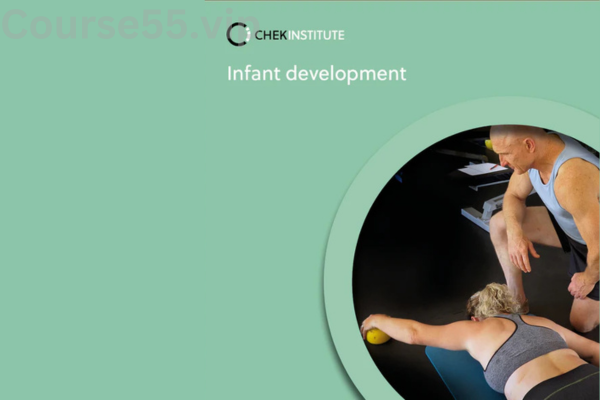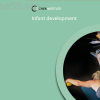-
×
 Ultimate Guide Technical Trading
1 × $23.10
Ultimate Guide Technical Trading
1 × $23.10 -
×
 ECOM ACADEMY DAN DASILVA | MAKE 6K PER DAY WITH SHOPIFY STORE
1 × $23.10
ECOM ACADEMY DAN DASILVA | MAKE 6K PER DAY WITH SHOPIFY STORE
1 × $23.10 -
×
 Healthy Hormone Done-For-You By Lorene Sauro
1 × $23.10
Healthy Hormone Done-For-You By Lorene Sauro
1 × $23.10 -
×
 The Marriage Reset: From Obligation To Adventure By Dani Johnson
1 × $31.00
The Marriage Reset: From Obligation To Adventure By Dani Johnson
1 × $31.00 -
×
 Transgender & Gender Non-Binary (TGNB) Clients: Clinical Issues and Treatment Strategies By lore m dickey - PESI
1 × $23.10
Transgender & Gender Non-Binary (TGNB) Clients: Clinical Issues and Treatment Strategies By lore m dickey - PESI
1 × $23.10 -
×
 New Rules for Treating Trauma: Integrating Neuroscience for Resilience, Connection and Post-Traumatic Growth By Courtney Armstrong - PESI
1 × $23.10
New Rules for Treating Trauma: Integrating Neuroscience for Resilience, Connection and Post-Traumatic Growth By Courtney Armstrong - PESI
1 × $23.10 -
×
 Ethics & Cultural Competency: 1-Day Intensive Certificate By Frances Patterson - PESI
1 × $23.10
Ethics & Cultural Competency: 1-Day Intensive Certificate By Frances Patterson - PESI
1 × $23.10 -
×
 Self-Regulation & Executive Functioning in Children and Adolescents: Visual Strategies and Hands-on Techniques to Provide Structure, Predictability, and Routines By Kathy Morris
1 × $23.10
Self-Regulation & Executive Functioning in Children and Adolescents: Visual Strategies and Hands-on Techniques to Provide Structure, Predictability, and Routines By Kathy Morris
1 × $23.10 -
×
 Barb Stepp’s NLP Master Practitioner By Barbara Stepp
1 × $23.10
Barb Stepp’s NLP Master Practitioner By Barbara Stepp
1 × $23.10 -
×
 Understanding the Needs of the Dying: Bringing Hope, Comfort and Love to Life's Final Chapter By David Kessler - PESI
1 × $23.10
Understanding the Needs of the Dying: Bringing Hope, Comfort and Love to Life's Final Chapter By David Kessler - PESI
1 × $23.10 -
×
 The Complete Crowdfunding PR System By Salvador Briggman - CrowdCrux
1 × $23.10
The Complete Crowdfunding PR System By Salvador Briggman - CrowdCrux
1 × $23.10 -
×
 Writing Email Copy for B2B Companies By AWAI
1 × $23.10
Writing Email Copy for B2B Companies By AWAI
1 × $23.10
The Science and Application of Infant Development For Adults By CHEK Institute
$139.00 Original price was: $139.00.$23.10Current price is: $23.10.
SKU: C55vip.42976LDbfYsMn
Category: Download
Tags: CHEK Institute, Infant, Infant Development For Adults, The Science and Application of Infant
The Science and Application of Infant Development for Adults – Digital Download!

The Science and Application of Infant Development For Adults By CHEK Institute
Overview

The Significance of Infant Development and Its Application for Adults
The course titled “The Science and Application of Infant Development for Adults,” provided by the CHEK Institute, reveals the deep connections between the early stages of human development and their impact on adult health and performance. In a world where immediate fitness results often take precedence, this course emphasizes the critical role that the first years of life play in shaping an individual’s future. Just as the roots of a tree provide stability and nourishment, early developmental stages significantly influence both physical and emotional health later in life. For professionals working in health, fitness, and rehabilitation, understanding these foundational experiences is essential for crafting effective training and recovery programs.
Exploring the Foundations of Human Infant Growth
Human development is a continuous process marked by distinct phases, each of which plays a vital role in shaping who we become. This course explores the key developmental milestones in infancy, illustrating how motor, cognitive, social-emotional, and sensory developments interconnect to create the framework for future growth. By understanding these stages, we gain crucial insights into how early experiences contribute to lifelong health and well-being.
Key Phases in Infant Development and Their Importance
-
Neonatal Phase (0-2 months): At birth, infants are incredibly vulnerable, yet they exhibit reflexes that establish the groundwork for movement and coordination in the future.
-
Infancy (2-12 months): During this period, infants engage with their bodies, progressively mastering motor skills like rolling, sitting, crawling, and walking, which symbolize growing autonomy and exploration.
-
Toddlerhood (1-3 years): Rapid physical and cognitive development takes place, with toddlers learning to run, jump, and engage in play that sharpens motor skills and spatial awareness.
-
Preschool Years (3-5 years): As children develop social awareness, they begin to understand interpersonal relationships and engage in more complex forms of play, which are key for emotional regulation and social growth.
Understanding these phases not only helps us gauge typical development but also sheds light on how any interruptions during these stages may lead to challenges in health and performance later in life.
The Lasting Impact of Early Development on Adult Health
Disruptions in early development can have lifelong consequences. For example, delays in acquiring basic motor skills during infancy may lead to issues with coordination and movement in adulthood. Research in psychology indicates that motor skills are closely linked with emotional and cognitive development, meaning that a lack of early physical milestones could contribute to psychological issues such as anxiety or low self-esteem later on. Recognizing these developmental nuances allows health and fitness professionals to create more informed treatment and training plans that address the root causes of later-life challenges.
Studies suggest that individuals who experience developmental delays are at greater risk of health complications later in life. By identifying and addressing these early disruptions, rehabilitation strategies can mitigate potential long-term effects, improving both physical function and overall wellness.
Identifying and Addressing Developmental Interruptions
One of the course’s most valuable aspects is its exploration of developmental interruptions and their long-term effects. It encourages participants to identify signs of these disruptions early on and understand their implications for adult health. Like a gardener recognizing and removing weeds, professionals must be equipped to spot early signs of developmental obstacles to address them effectively.
Signs of Developmental Disruptions to Watch For
Some key indicators of developmental delays include:
-
Delayed Milestones: Difficulty reaching motor or cognitive milestones within expected age ranges.
-
Coordination Challenges: Issues with balance and spatial awareness, often due to unaddressed foundational movements.
-
Behavioral Difficulties: Emotional or social struggles stemming from incomplete early developmental experiences.
By identifying these signs early, health professionals can introduce personalized interventions tailored to each individual’s unique developmental history. Potential strategies include:
-
Targeted Physical Therapy: Exercises to improve motor skills and coordination.
-
Cognitive Development Activities: Tasks to enhance focus, problem-solving, and learning.
-
Social Engagement Initiatives: Programs designed to encourage interaction and communication in structured settings.
The CHEK Institute’s course combines theoretical understanding with practical strategies, enriching participants’ knowledge and providing them with effective tools for dealing with developmental challenges.
Practical Approaches for Rehabilitation in Light of Early Development
The link between early developmental stages and adult athletic performance is profound yet often overlooked. To bridge this gap, the course offers practical rehabilitation strategies that address the long-term effects of early developmental experiences. This approach not only strengthens physical performance but also builds emotional resilience, turning past developmental obstacles into opportunities for growth.
Comprehensive Techniques for Rehabilitation and Development
-
Movement Re-education: Focused exercises that encourage the rediscovery of essential movement patterns, improving strength and coordination.
-
Functional Movement Evaluations: Assessing current abilities to create personalized plans that address gaps in movement proficiency.
-
Holistic Health Practices: Combining physical, mental, and emotional health strategies to promote overall wellness.
These interventions provide lasting benefits that extend far beyond physical improvements, creating positive changes in all areas of life. Individuals who undergo thorough rehabilitation not only achieve better physical performance but also experience enhanced mental and emotional well-being.
Feedback from Participants and Course Impact
The course has received enthusiastic feedback from participants, who praised its thoroughness and practicality. Many reported a heightened awareness of how to handle cases of developmental delays and appreciated the course for shedding light on the connections between early development and adult outcomes.
Highlights of Participant Satisfaction:
-
Comprehensive Content: More than 90% of participants reported satisfaction with the depth of the information provided.
-
Practical Application: 85% noted they could immediately apply what they learned in their professional practices.
-
Professional Growth: Many participants reported feeling more competent and confident when working with clients facing developmental challenges.
The positive feedback demonstrates the course’s effectiveness in enriching professionals’ understanding of how infant development influences adult health and performance.
Conclusion
In an age focused on quick fixes and immediate results, the “Science and Application of Infant Development for Adults” course provides a refreshing approach rooted in understanding the lasting significance of early life experiences. The CHEK Institute expertly navigates the complex relationship between early developmental milestones and adult health outcomes. Recognizing the long-term impact of formative years on physical and mental health is essential for creating effective rehabilitation strategies and fostering holistic wellness. By bridging the gap between early development and adult health, this course not only enhances professional knowledge but also encourages a deeper compassion for the human experience.
Frequently Asked Questions:
Business Model Innovation: We operate a group buying strategy, allowing participants to share costs and access popular courses at reduced prices. This model benefits individuals with limited financial resources, despite concerns from content creators about distribution methods.
Legal Considerations: The legality of our operations involves complex issues. Although we don’t have explicit permission from course creators to resell their content, there are no specific resale restrictions stated at the time of purchase. This ambiguity creates an opportunity for us to provide affordable educational resources.
Quality Control: We ensure that all course materials purchased are identical to those offered directly by the creators. However, it’s important to understand that we are not official providers. As such, our offerings do not include:
– Live coaching calls or sessions with the course author.
– Access to exclusive author-controlled groups or portals.
– Membership in private forums.
– Direct email support from the author or their team.
We aim to reduce the cost barrier in education by offering these courses independently, without the premium services available through official channels. We appreciate your understanding of our unique approach.
Be the first to review “The Science and Application of Infant Development For Adults By CHEK Institute” Cancel reply
You must be logged in to post a review.













Reviews
There are no reviews yet.